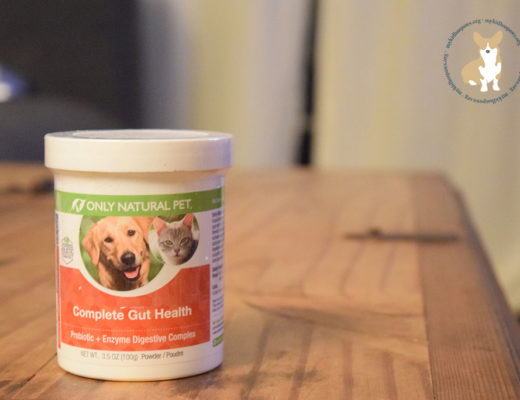Main photo by: Photo by Sneaky Elbow on Unsplash
It may be the fact that I work in startups, or let’s be honest, that I live in California, but CBD has become a more common term in the general health discussion. So much so, that the National Academies of Sciences, Engineering, and Math published research on the Health Effects (and potential benefits) of Cannabis and Cannabinoids.
Since I have a tendency to talk to everyone I know about their pet’s health, many pet parents have asked about the efficacy of CBDs. Unfortunately, I stopped working in the veterinary industry right as CBD began gaining popularity, so I am lucky to be able to rely on my good friend and Rooney’s veterinary, Summer Godfrey-Orgain DVM for insight on the efficacy of CBDs, and how they play a role in veterinary medicine.
There is a lot of information in this article, so to summarize, this is what we will cover today:
- What is CBD?
- Are CBDs safe for pets?
- Is CBD legal to use for pets in the state of California?
- Facts versus Myths
- Can CBDs really help cure cancer?
- How much research is available to prove that CBDs improve pet health?
- Are pet parent’s really using CBDs?
- Which CBD product is right for my pet?
- How much CBD should I give my pet?
What is CBD?
There are several terms associated with CBD, therefore, it’s important to understand the differences between them:
“First, when I talk about CBDs, to what exactly am I referring? Cannabinoids are chemicals derived from the Cannabis plant (phytocannbinoids). More than 100 unique cannabinoids occur exclusively in Cannabis sativa plants, the most well-known of which is THC. CBD is an abbreviation for Cannabidiol a cannabinoid that is extracted from Cannabis. CBD lacks the psychotropic (hallucinogenic) effects typical of THC.” – Summer Godfrey-Orgain DVM, Amador Valley Veterinary Center
Its very important that pet parents understand the differences in the plant strains if interested in using CBD for their pet’s health because a blend with too much THC can cause problems for pets who consume the plant.
If you are concerned that your pet has consumed THC, here are some of the common symptoms to look for according to Pet Poison Helpline:
- sedation/lethargy
- dilated pupils or glassed over eyes
- dazed expression
- difficulty walking
- vomiting
- low or high heart rate
- vocalization such as whining or crying
- agitation
- trouble regulating temperature causing the body temperature to drop or rise
- incontinence/dribbling urine
- tremors
- seizures
- potential coma
“Signs of toxicity can be seen anywhere from 5 minutes to 12 hours after the animal is exposed to marijuana. The signs can potentially last 30 minutes to several days depending on the dose ingested.” – Pet Poison Helpline
Are CBDs safe for pets?
“So far, I have not witnessed any lethargy, vomiting or other negative side effects in my patients. Note that in this article we are only talking about CBDs, not THC. I have seen lethargy on patients taking combination products with THC. Also keep in mind that any vitamin, herbal therapy, holistic product or drug can have side effects in any patient.” – Summer Godfrey-Orgain DVM, Amador Valley Veterinary Center
Is CBD legal to use for pets in the state of California?
“Now that Former Governor Jerry Brown signed legislation that allows veterinarians to talk about this, I am in the clear to share my experiences with you. I recommend the use of CBDs (Cannabidiol) specifically in my Veterinary practice. I have witnessed CBDs improve quality of life in several common medical conditions.” – Summer Godfrey-Orgain DVM, Amador Valley Veterinary Center

Photo by Paul Thomas on Unsplash
Facts versus Myths
Now that we have established what exactly CBD is, and that is it legal in the state of California, we now have to decipher the facts from the myths:
“Can Cannabinoids, Hemp or Marijuana help my pet?” If you do a Google search (which I did), one would think that Hemp products can do everything from help with arthritis, protect the heart, and even cure cancer. Are these statements true and if they are, how and when should you administer them to your pet? Are these products safe? How do you separate fact from fiction?
At our practice, Amador Valley Veterinary Center, we use CBDs successfully to treat the following conditions:
- Pain: Joint pain such as hip arthritis, elbow arthritis, back pain, muscle spasms, pinched discs in the back or neck, and surgical pain. CBDs can be used in combination with traditional pain medications such as NSAIDs and gabapentin without negative interactions. We frequently use CBDs in addition to holistic therapies such as acupuncture, especially in pets that cannot tolerate tradition pain medications. Pet parents report more energy and movement while pets with these conditions take CBDs.
- Anxiety: Many types of anxiety from car ride anxiety to noise phobias have been improved on CBDs. CBDs can be used for chronic anxiety with or without traditional medications like Prozac. Results vary from patient to patient, but they always help in some capacity.
- Cognitive Dysfunction aka Doggy Alzheimer’s: This is a frustrating, under-diagnosed and under-appreciated disease in senior pets. There are not many medications or supplements that help cognitive dysfunction in animals, except for CBDs. I have one of my own pets taking CBDs for confusion, panting, and pacing that used to set in at about 8-10pm.” – Summer Godfrey-Orgain DVM, Amador Valley Veterinary Center
Can CBDs really help cure cancer?
“I cannot say that I have seen CBDs reduce or cure cancer. I have not appreciated that it helps with digestion or stomach disorders. I have never witnessed beneficial effects on the heart. I have a variety of patients that take CBDs for arthritis that also have metabolic diseases such as kidney dysfunction. I have not seen CBDs increase appetite or help with functions of organs. Due to the lack of research so far, there is no evidence that CBDs will or will not help these conditions.” – Summer Godfrey-Orgain DVM, Amador Valley Veterinary Center

Photo by sarandy westfall on Unsplash
Are pet parents really using CBDs?
According to a pet parent survey conducted by the Michelson Found Animals Foundation: “Those who have used CBD oil or hemp products with their pets have done so as part of a general health plan (45%), to care for an older pet (45%), for a specific behavioral condition (39%) or for temporary relief such as following surgery or on a flight (39%).”
How much research is available to prove that CBDs improve pet health?
When treatments are new, it can be tempting to jump in and try new things, but it’s always a good idea to understand exactly how much research is available before you decide to add a new “tool” to your pet parent “toolbox”.
“CBDs work on serotonin, opioids, glutamate, gaba amino butyric acid, and N-methyl-D-aspartate receptors (Fine et al 2013) as well as ion channels involved in the transmission of pain. Cannabinoids can also influence neurotransmitters of the sympathetic and parasympathetic systems (Niaz et al 2017). Stephanie McGrath, a neurologist and assistant professor at Colorado State University’s College of Veterinary Medicine & Biomedical Sciences, has completed two clinical studies since 2016 on the effects of cannabidiol in dogs with osteoarthritis or epilepsy. Dawn Boothe, director of clinical pharmacology at Auburn University College of Veterinary Medicine, is studying cannabidiol as a treatment for epilepsy in dogs and is also developing an assay to measure cannabinoid toxicity and efficacy.” – Summer Godfrey-Orgain DVM, Amador Valley Veterinary Center
Which CBD product is right for my pet?
A myriad of companies have approached me about CBD treats and supplements in the last 2 years. In order to really know what’s best for your pet, your best bet is working with your veterinarian, due to lack of consistency and regulation of current products.
“This is a tough question. Much like vitamins, glucosamine and herbal therapies, there is no current CBD product that is FDA approved or monitored. Why is this important? The FDA makes sure that the drug and amount on the label is the exact same amount that is contained in each pill, capsule, liquid or treat. This means that vitamins or CBDs labeled as 3mg capsules could actually have 1 mg or 5 mg. There is no way to verify. Ask your Veterinarian what products have worked for them.” – Summer Godfrey-Orgain DVM, Amador Valley Veterinary Center
How much CBD should I give my pet?
“This is another difficult question. There have been no reliable oral absorption studies, so the doses we use are guesses based on experience. An exact dosing is made more difficult by the facts laid out above. It is best to make an appointment with a Veterinarian who has some experience with CBD products for advice.” – Summer Godfrey-Orgain DVM, Amador Valley Veterinary Center




M. K. Clinton
March 1, 2019 at 8:26 pmI give Bentley and Pierre Treatibles CBDs and have definitely noticed a difference in them as far as calming them down.
Monika, Sam & Elsa
May 30, 2019 at 5:53 amHaving a dog who suffers from idiopathic epilepsy, I can attest to the efficacy of CBD. Elsa now receives a number of drops 3 times a day of a certified natural grow, full spectrum CBD (along with her anti-seizure medication). Since switching to this brand, her seizure frequency and episode duration has dramatically been reduced. Before she’d have seizures every 6-8 weeks apart, but since switching to our current brand, she’s had only 2 small seizures in the past 13 months. It has helps my other dog who is over 13 and begun to slow down. It seems to help his senior hips as well as calms both dogs during fireworks and thunderstorms. So, yes…count me as a big advocate for making a ‘pawsitive’ difference in my fur-babies lives.
Monika, Sam & Elsa recently posted…Wish I Were There Wednesday